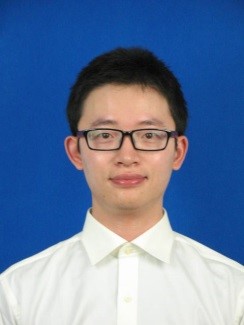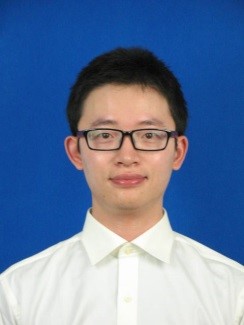Resume
Dr. Li Zheng received his B.S. degree from Kuang Yaming Honors School, Nanjing University in 2011, and Ph.D. degree from Shanghai Institute of Microsystem and Information Technology (SIMIT), Chinese Academy of Sciences (CAS) in 2016. From Oct. 2016 to Dec. 2018, he was an Assistant Professor at SIMIT, and from Jan. 2019 to present, he has been an Associate Professor at SIMIT. His current researches focus on wide-gap semiconductor power devices fabrication and interface passivation. As a project leader, he is responsible for the National Natural Science Foundation project, Shanghai Technology Innovation Action Plan Project, Shanghai Sailing Program and so on.
EDUCATION
B. S., Physics, 2007-2011, Nanjing University
Ph.D., Microelectronics and Solid-state Electronics, 2011-2016, Shanghai Institute of Microsystem and Information Technology, Chinese Academy of Sciences
Joint Ph.D., Microelectronics and Solid-state Electronics, 2015-2016, University of California, Los Angeles
RESEARCH EXPERIENCE
Associate Professor, Shanghai Institute of Microsystem and Information Technology, Chinese Academy of Sciences, 2019-Present
Assistant Professor, Shanghai Institute of Microsystem and Information Technology, Chinese Academy of Sciences, 2016-2018
HONORS AND AWARDED RESEARCH FUNDS
2016 Special Prize of President Scholarship of Chinese Academy of Sciences
2018 Excellent Doctoral Dissertation of Chinese Academy of Sciences
2018 Excellent Doctoral Dissertation of China Education Society of Electronics
2019 Excellent League Cadres of Science and Technology Commission of Shanghai Municipality
2020 Excellent League Cadres of Chinese Academy of Sciences
2017-2020 Shanghai Sailing Program “Direct formation of graphene/hybrid high-k dielectrics heterojunctions and its physical mechanism”
2018-2020 Youth Program of National Natural Science Foundation of China “Controlled doping and in-situ defects modification of multi-layer MoS2 by low energy plasma”
2019-2020 Technology Innovation Program of Equipment Function Development of Chinese Academy of Sciences “Development of plasma self-matching equipment of atomic layer deposition system”
2019-2021 Shanghai Technology Innovation Action Plan Project “Large-size and high-performance GaN-on-SOI wafer and half bridge switch verification of monolithic integration”
2020-2023 Fund of Youth Innovation Promotion Association, Chinese Academy of Sciences
SELECTED PUBLICATIONS
1. L. Zheng, et al. “Ambipolar Graphene-Quantum Dot Phototransistors with CMOS Compatibility”Adv. Opt. Mater., 2018, 1800985.
2. L. Zheng, et al. “Improvement of Al2O3 films on graphene grown by atomic layer deposition with pre-H2O treatment”, ACS Appl. Mater. Inter., 2014, 6, 7014.
3. L. Zheng, et al. “Semiconductor-like nanofilms assembled with AlN and TiN laminations for nearly ideal graphene-based heterojunction devices”, J. Mater. Chem. C, 2016, 4, 11067.
4. Q. Wang, L. Zheng*, et al. “Influence of LaSiOx passivation interlayer on band alignment between PEALD-Al2O3 and 4H-SiC determined by X-ray photoelectron spectroscopy”, Appl. Surf. Sci., 2018, 428, 1.
5. Q. Wang, L. Zheng*, et al. “Interfacial chemistry and energy band alignment of TiAlO on 4H-SiC determined by X-ray photoelectron spectroscopy”, Appl. Surf. Sci., 2017, 409, 71.
6. Q. Wang, L. Zheng*, et al. “Enhanced interfacial and electrical characteristics of 4H-SiC MOS capacitor with lanthanum silicate passivation interlayer”, Appl. Surf. Sci., 2017, 410, 326.
7. Q. Wang, L. Zheng*, et al. “Band alignment between PEALD-AlNO and AlGaN/GaN determined by angle-resolved X-ray photoelectron spectroscopy”, Appl. Surf. Sci., 2017, 423, 675.
8. Q. Wang, L. Zheng*, et al. “PEALD induced interface engineering of AlNO/AlGaN/GaN MIS diode with alternate insertion of AlN in Al2O3” ISPSD, 2017.
9. L. Shen, L. Zheng, et al. “Performance improvement and current collapse suppression of Al2O3/AlGaN/GaN HEMTs achieved by fluorinated graphene passivation”, IEEE Electr. Device L., 2017, 38, 596.
10. D. Liang, L. Zheng, et al. “Reliability improvement of GaN devices on free-standing GaN substrates” IEEE T. Electron. Dev., 2018, 65, 3379.

